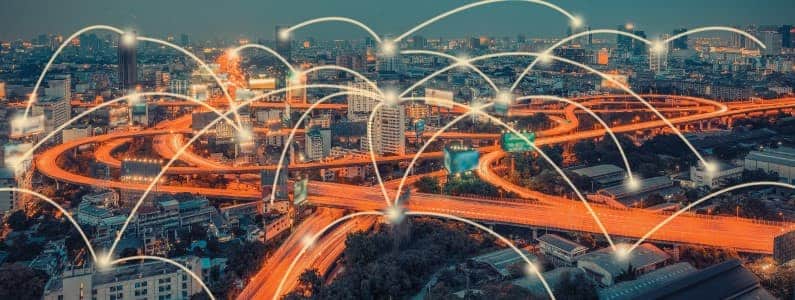Understanding the Digital Transformation of Government

The digital era of mobile, social, cloud and the Internet of Things (IoT) doesn’t just impact individuals or enterprises – it’s also sweeping through the government sector. Trends such as immigration reform, digital currencies, and cyber threats are prompting national, state and local agencies to digitally transform to increase efficiencies and improve their effectiveness in supporting citizens.
Are you ready for a digital government?
According to IDC Research Director Alan Webber, digital government is composed of governmental agencies, programs and operating principles that leverage digital technologies to become more efficient and more effective. But, unlike past techno-government initiatives like eGovernment and Government 2.0, digital government isn’t just about adopting new web technologies or developing mobile apps. It’s about using new digital technologies to fundamentally change how government operates and engages with its constituents.
Digital transformation changes the whole engagement paradigm not only for processes but employees and service models as well. For example, while an electronic toll collection system leverages new technology, it also demands changes in government staffing models, business processes and applications.
As digitalization of government takes hold, agencies not only become more responsive and deliver a better level of service, but they do so while increasing overall efficiency.
Getting There
According to a Deloitte survey, governments are at very different stages in their journey of digital transformation. The executive summary states that “A small percentage are what we consider ‘maturing,’ but the overwhelming majority are still in the early or developing stages of this journey.”
A digital government transformation requires a change in infrastructure. Key technologies to consider include:
- The Cloud: Constituents expect the same modern experience when they visit a government website as they do in the consumer world, and that their interactions will be seamless and useful. Whether public, private or hybrid, cloud computing enables governments to both reduce capital investments in computing resources, increase efficiencies and vastly improve the user experience.
- Big Data: In digital government, digital processes replace paper records, significantly increasing the amount of data collected. Analyzing this immense amount of data to discover trends and behaviors will provide insights to design better services and identify potential problems. The result is more efficient, immediate (and satisfying) constituent interactions.
- IoT: Connected devices collect a variety of data that can then be used to monitor physical devices and buildings, measure performance and improve user experiences. For example, smart traffic lights provide governments with data to reduce rush-hour traffic congestion, significantly increasing quality of life for its citizens.
- Mobility: By engaging with citizens through their preferred mode of communication, government agencies can use mobile platforms to not only improve experiences but also collect data and process information quickly, improving engagement over time.
Unfortunately, digital transformation also comes with its own potential problems and issues that must be considered, such as:
- Security: Cyberattacks are increasing in frequency and becoming more sophisticated. Digital operations can increase vulnerabilities if they are not engineered with security in mind.
- Business processes: Digital governments must actively manage changes in work processes, staffing levels, skill requirements, engagement channels and more.
- Regulatory/legal requirements: As more data is digitally collected, governments must pay close attention to regulatory rules regarding the storage of data to protect citizen privacy.
The biggest hurdle is trying to significantly improve the quality of services while staying within budget. As agencies transform how they operate, hybrid IT solutions can transform how government operates; solving critical problems while meeting the requirements that will lead to technology and cost efficiencies.
As experts in hybrid IT solutions, OneNeck is committed to helping our customers connect with citizens in a seamless manner, foster mobility and govern more agilely and efficiently – all while improving transparency, performance and governance.



